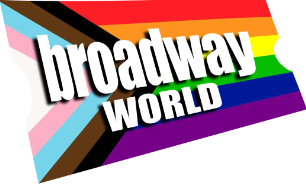Anais Mitchell blames the patriarchy for people wanting perfect rhymes in theatre songs. Seriously.
Alex Kulak2
Broadway Legend Joined: 9/11/16
#75Anais Mitchell blames the patriarchy for people wanting perfect rhymes in theatre songs. Seriously.
Posted: 1/1/20 at 10:32pm
Almira said: "I guess that means Betty Comden, Lynn Athens, Jeanine Tesori, Amanda Green, Dorothy Fields, Carolyn Leigh are all dupes to the patriarchy.
Mitchell is a lazy lyricist who pretty much insulted the hard work, dedication to craft, and achievements of these superior theatre writers."
With the exception of Soft Power, Jeanine Tesori doesn't write her own lyrics. Other writers do, like Tony Kushner and Lisa Kron, both of which used slant rhymes occasionally in Caroline or Change and Fun Home, respectively
ducdebrabant
Swing Joined: 10/26/06
#76Anais Mitchell blames the patriarchy for people wanting perfect rhymes in theatre songs. Seriously.
Posted: 1/15/22 at 9:55am

Active
James Harris
15h · Shared with Your friends![]()
Perfect rhymes help you to hear.
Listening to lyrics is hard when you need to understand a song on first hearing. People have largely shed the skill, as rock lyrics (even when they are not banal) are not things you have to listen to very closely. Often, the lyrics are an adjunct, an extra. The title line is the only important one. They are not dense with information, like theatre lyrics. I find rap very hard to decipher, but I suspect that people ARE listening to it carefully. Still, they don't have to understand it on first hearing. In the theatre, yeah, you should.
Instead of the active listening you need to do in the theatre, what people began to do with rock songs (often) was listen to a CD with the lyrics booklet in hand, and try to elucidate it like a Hart Crane poem. But the lyricist is probably no Hart Crane, and may not even know what he meant, or have meant anything. The listener is happy enough with his own interpretation, and feels like a little Helen Vendler of the popular song world.
But in a musical, the lyrics are exposition, and should be attended to. Rhymes help. The rhyme "monolithic" confirms that, yes, that word you heard in the previous line actually WAS "mythic"--not "mystic." But if the near rhyme "moralistic" is used in that rhyming position instead, uh oh, you see the problem?
But much more important to me than the practicality of listening (or remembering; one person at BMI told me the ENTIRE purpose of rhyme is mnemonic, for the singer) is that real rhyming is harder, and the lapidary result (a.) is more clever, and (b.) shows the audience more respect. Intricate rhyming, where the rhymes are not predictable, and the lyrics have turnarounds and payoffs and subtexts, is just more fun to me.
I HAVE liked near-rhymes, but only when the lyricist used them with just as much care as his colleague uses perfect rhymes. That is almost never the case, but I can tell you of a time.
Robert Lorick in THE TAP DANCE KID was writing for characters who wouldn't have perfected a polite, erudite speech, but that needn't trouble Lorick, who wanted to write elegantly for them anyway. He used, for example, a TRIPLET of bad rhymes: "nuisance," "two cents," and "unloosens."
When you hear the first bad rhyme, you think he's just a lousy rhymer (the distinction between a brave battler with the "patriarchy" and just a sloppy writer is a difficult one to make), but when you hear the THIRD rhyme, which is bad in a different way, you know that Lorick is doing it on purpose.
Just as three points define a plane, the third bad rhyme lets you know that the rhyming in the show, though deliberately not perfect, is in studious and methodical hands.
The "bad rhyming" of E. Y. Harburg or Ira Gershwin, where pronunciations are distorted, is a slightly different case, a species of whimsy, but you know it's deliberate too. Good lyricists, in my opinion, let you know you are in capable hands, that any attention you pay them will be repaid. They may not be straining to be clever, their work may sound conversational, but you can't fault their craft.
I am offended when writers just use approximate rhymes willy-nilly, when they sometimes rhyme perfectly and sometimes don't, whenever I think they are simply falling down on the job. But as offensive as I find THAT, I find it way more offensive when they develop some specious political argument for their own laziness.
Sondheim doesn't rhyme perfectly to oppress women, any more than Dorothy Fields or Carolyn Leigh rhymed perfectly to oppress Sondheim. And if THOSE ladies could rhyme beautifully, so could Anais Mitchell, if she would just put herself to a little damned trouble.
I wasn't born knowing how to write lyrics, but standards were always with me, models were always at the back of my mind, and I always knew when a line worked and when it could be bettered. The skills to better it might not always have been mine, but skills of this kind do not come unbidden. Genius has been defined as the infinate capacity to TAKE PAINS.
A lot of people have no standards, and whether they know or not that there are flaws in their work, the flaws are there either way. They can't be excused or explained away, in my opinion, by saying that perfect rhyming sounds artificial and approximate rhyming sounds more sincere (it may not have been the rhymes that did it, but nothing has wrung my heart like perfectly rhymed songs). And it certainlly cannot be portrayed as some kind of engagé political statement.
What an illiterate does carelessly doesn't become revolutionary just because he denounces his betters for being above it,
Videos
